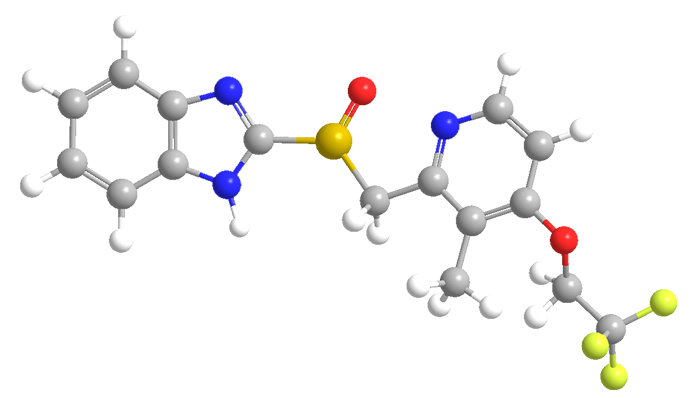

Lansoprazole is a drug that is commonly used to treat gastroesophageal reflux, or “heartburn”. It is a proton-pump inhibitor that reduces the stomach’s ability to produce acids. It is also used to treat gastric ulcers and, along with antibiotics, to combat Helicobacter pylori infections. It is in the same drug class as omeprazole (Prilosec), another widely used heartburn remedy.
In 1995, the US Food and Drug Administration granted approval to TAP Pharmaceuticals (a joint venture of Takeda Pharmaceuticals and Abbott Laboratories) to market lansoprazole under the trade name Prevacid. After the drug’s patent protection expired in 2009, several companies began to sell lansoprazole over the counter worldwide.
Earlier this year, S. T. Cole and co-workers at the Swiss Federal Institute of Technology (ETH) in Lausanne included lansoprazole in a screen of compounds for activity against Mycobacterium tuberculosis. They found that in the cellular environment lansoprazole’s sulfoxide group is reduced to sulfide and kills the tuberculosis bacterium. Oral administration of the drug significantly reduces TB infections in mice.

Learn more about this molecule from CAS, the most authoritative and comprehensive source for chemical information.
Molecule of the Week needs your suggestions!
If your favorite molecule is not in our archive, please send us a message. The molecule can be notable for its current or historical importance or for any quirky reason. Thank you!
Stay Ahead of the Chemistry Curve
Learn how ACS can help you stay ahead in the world of chemistry.

